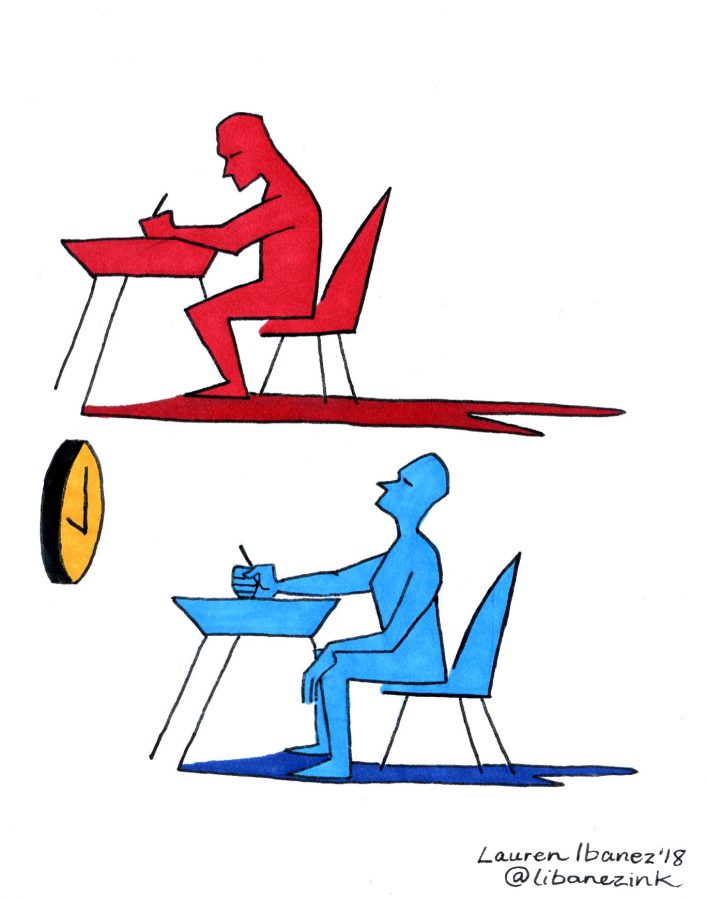Online learning offers different experiences for UT students with learning disabilities
May 8, 2021
After spending three days in the psychiatric hospital, Alexa Smith realized in March it was time to withdraw from UT and regroup.
She was halfway through the semester, but she said her battle with ADHD and the added burden of the COVID-19 pandemic made continuing classes impossible.
“I should be able to force myself to handle this stuff when really, it’s clear I can’t,” said Smith, a women and gender studies senior. “I knew it would just get back to that same point again, so that’s when I decided to withdraw.”
After falling behind in her schoolwork, Smith said she felt overwhelmed. She said she struggled with deadlines, lack of accountability and isolation that came with online learning.
In fall 2020, about 3,000 students were registered with learning difficulties such as ADHD and autism, according to the Services for Students with Disabilities.
The transition to online school becomes more difficult for students with learning disabilities over time, said Ashley Richardson, the outreach administrator for Longhorn TIES, an initiative within New Student Services that offers support to autistic individuals.
“Fatigue has definitely set in (for) most students and not even (just) students. I would say (for) everyone in the entire world,” said Richardson, a licensed clinical social worker. “Some students miss the ability to go to campus and … interact with their peers.”
Sanger Learning Center specialist Stephanie Craven also noticed students struggling with isolation, along with COVID-19 anxiety and distractions from increased stimuli at home.
“As a learning specialist, I’m often having to check in and just see, ‘Do you have a social life?’ I realize (that) people kind of place social life really low,” Craven said. “(Students) see it as a distraction, but it’s one of the things that makes it so that you want to be here.”
Holly Genovese, an American Studies doctoral candidate, has ADHD, nonverbal learning disability and auditory processing disorder. While she does miss the social interaction of in-person learning, Genovese said she found some benefits from virtual learning, such as accessibility and decreased stress.
“Doing this kind of school from home has really opened opportunities up for (students with learning difficulties),” Genovese said. “They’d be too tired, or their illness prevented them, or maybe because of childcare or expense of driving to school. (They) could participate more in other learning opportunities.”
Genovese said some online learning techniques should be carried over as school moves back to mostly in-person learning in fall 2021.
“If events, talks or classes could be livestreamed, or if deadlines could still be a little more flexible, I think it would make things a little more equitable,” Genovese said.
Although the experience isn’t the same as learning in a physical classroom, Genovese said she doesn’t believe it’s inherently worse. She said others should view online education as “a wholly different experience with a wholly different set of requirements.”
Now that Smith has taken a step back from UT for the semester, she said she is already doing better.
“I was like, ‘Do I even need a withdrawal? I feel great, like this is fine,’” Smith said. “Then I was like, ‘Oh wait, that’s because I haven’t been on Canvas in two weeks.’”












